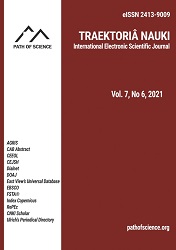Политика Израиля на Южном Кавказе как фактор обеспечения национальной безопасности
Israel’s Policy in the South Caucasus as a Factor of Ensuring National Security
Author(s): Ayten RamazanovaSubject(s): Energy and Environmental Studies, Regional Geography, International relations/trade, Security and defense
Published by: Altezoro, s. r. o. & Dialog
Keywords: South Caucasus; Israel; geopolitics; “peripheral strategy”; Netanyahu’s Doctrine; containment circles strategy; national security; regional security; energy security;
Summary/Abstract: The strategic position of the South Caucasus prompted the regional players, Russia, Iran and Turkey, to seek more significant influence on this territory. Israel is not a direct actor in the South Caucasus. Still, the region is of great strategic importance for the foreign policy doctrine of the Israeli state, whose interests only intensified as Iran’s influence had expanded after the lifting of sanctions in 2016. This article focuses on the region’s importance to Israel in its regional and national security. Based on this, the paper identifies and analyzes Israel’s geopolitical priorities and interests in the South Caucasus. The primary attention is paid to the main directions of Israel’s foreign policy, focused on protecting its vital interests. Since the creation of the Israeli state, the central foreign policy doctrines have been researched. The main aspects of Israel’s relations and interests with the region’s states (particularly the role of Iran) have been analyzed. Israel’s foreign policy is primarily tied to its deeply rooted historical traditions and is based on the principles of realism. Israel’s interests and policy in the Caucasus have three main aspects: strategic - a means of encircling Iran, medium-term - the energy supply zone, short-term - a market for the sale of high-tech weapons and ammunition. At the same time, these dimensions pose a challenge for the three traditional regional players - Russia, Turkey and Iran - who are very reluctant to admit extra-regional actors. The novelty of the article lies in consideration of Israel as a new geopolitical actor in the South Caucasus in the triangle of relations between regional and local states, as well as a zone for ensuring Israel’s geo-security. The main provisions and conclusions of the article can be used in scientific and pedagogical activities in assessing the issues of regional and national security, foreign policy and geopolitics of the South Caucasus.
Journal: Traektoriâ Nauki
- Issue Year: 7/2021
- Issue No: 12
- Page Range: 4001-4007
- Page Count: 7
- Language: Russian

